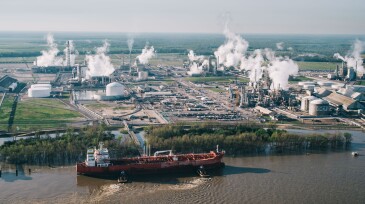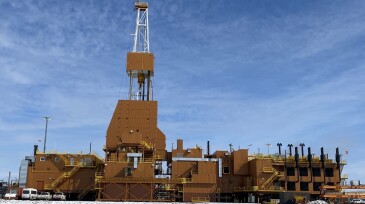HSE & Sustainability
The Oil and Gas Climate Initiative (OGCI) and nonprofit Carbon Mapper announced they are teaming up to launch a new collaboration aimed at accelerating practical and measurable reductions in methane emissions from the oil and gas industry.
The company said it has started transporting and storing carbon dioxide in its second carbon capture and storage operation in the state.
The annual survey is designed to gauge companies’ reporting practices regarding sustainability and governance.
-
A DNV report on decarbonization says the Middle East and North Africa region is expected to become the world’s largest hydrogen exporter by 2060 while maintaining a dominant position in global oil and gas markets.
-
The planned facility was designed to process 34 MMcf/D of associated gas into fully refined gasoline.
-
The newly named MTS brings together the full methane ecosystem, end to end—connecting technology, data, operations, and assurance across upstream, midstream, and beyond.
-
Monitoring on the ground is helping the industry shift from best estimates to hard data so it can bring the true emissions profile into focus.
-
Ongoing seismicity concerns and orphan well risks are pushing operators and regulators to explore alternatives for managing produced water.
-
A final investment decision is also expected by the end of the year for the company’s first low-carbon data center project.
-
The company said its frequency of serious incidents was down at the end of the year from its levels at the end of 2024.
-
The Doyon 26 drilling rig, reportedly the largest mobile land rig in North America, fell on its side while being transported in Alaska’s North Slope, sending eight people to area clinics for treatment of non-life-threatening injuries.
-
Damage to power distribution systems prompted precautionary shutdowns at two major oil fields.
-
The report says the capacity of renewables in the region is set to grow tenfold by 2040 as electricity demand and new sectors drive rapid solar and wind expansion.













